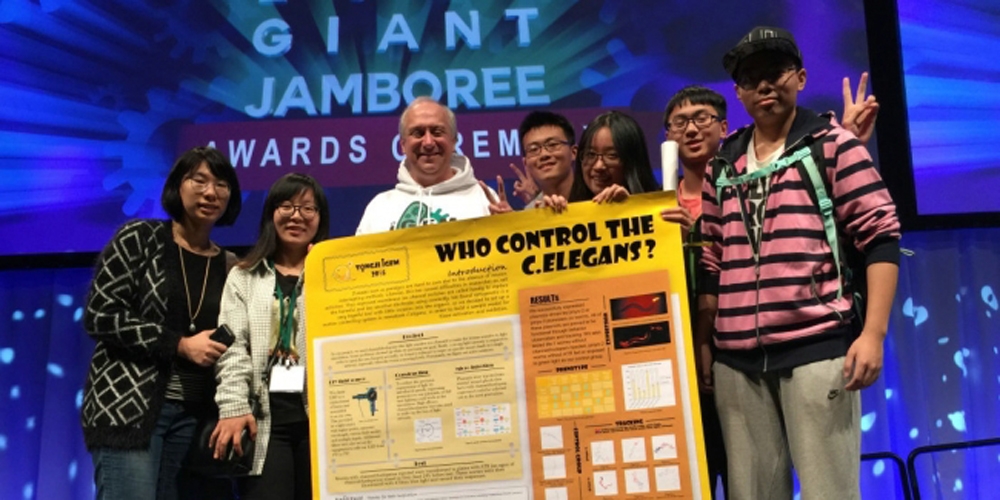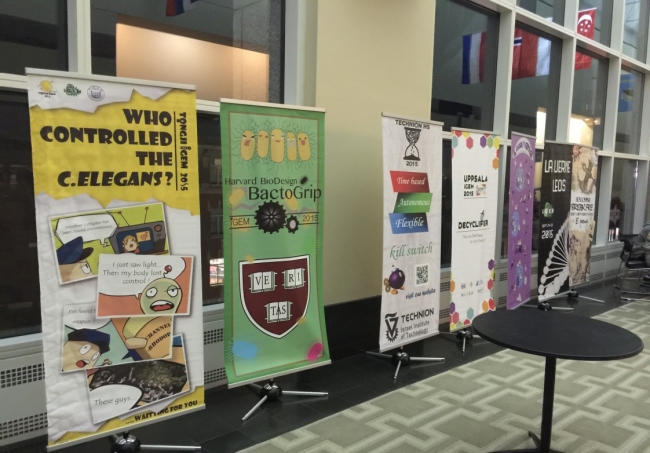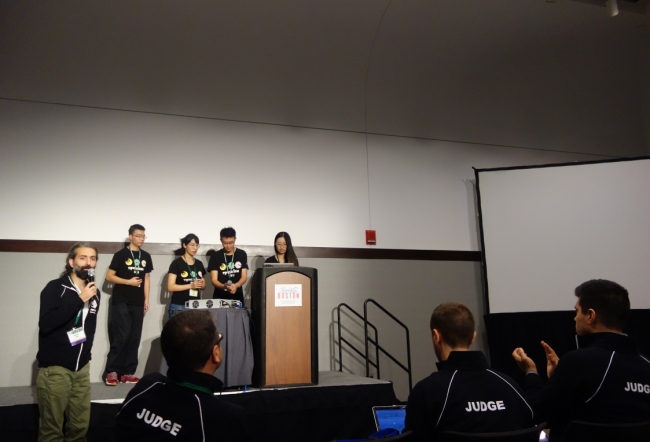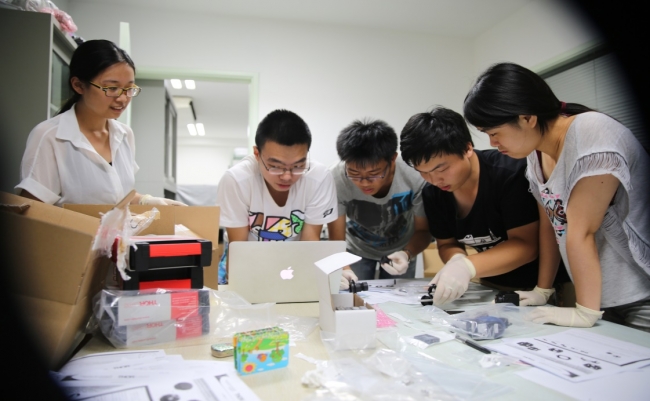On the afternoon of 28thSept. 2015, the World Championship of the 2015 International Genetically Engineered Machine (iGEM) Competition drew its curtain in Boston, US, marking the end of the top-level synthetic biology competition which lasted for six days. Tongji University iGEM Team made remarkable achievements again and won the gold medal. This was the second time they participated in the competition and won a top prize since last year’s silver medal.

iGEM competition, a worldwide top-level synthetic biology competition, was first held by Massachusetts Institute of Technology(MIT) in 2005. It was a multidisciplinary competition which saw an integration of different disciplines ranging from mathematics, physics to electronics and computer science. A special committee was established for the administration of the competition at a later stage. iGEM required participating teams to decide a topic of their own choice and designed and built a biological system to be displayed and controlled in the engineering bacteria. This competition aimed at improving the student’s capacity of independent thinking and their ability of working in a team as well as their passion for science. Research results from participating students were encouraged submit to the competition committee at MIT so that their innovative achievements could be shared by scientists from all over the world, thus creating a profound academic and potential practical value. Besides, the competition has provided college students from different countries and majors with an international platform to communicate with each other. Each year, it drew wide attention from both leading international science magazines such asNatureandScienceand international mainstream media like BBC.

This year’s iGEM competition was very fierce, attracting over 270 teams worldwide including those from world leading universities, such as MIT, Harvard, Cambridge and Heidelberg. A total of 61 Chinese teams joined this competition, including Tongji University, Fudan University, Peking University, Shanghai Jiaotong University, Sun Yat-sen University, Tianjin University, Tsinghua University and Zhejiang University.

Tongji University iGEM Team designed and managed to control the movement of caenorhabditis elegans (C.elegans) by putting optogenetic technology into application. Opsin which was sensitive to light was expressed on a particular neuron and muscles of the whole body which controlled the behavior of C. elegans in its moving forward, backward and making turns. They would be activated when exposed to light of certain wave length, which in turn activated certain neurons for the purpose of keeping the movement of C.elegans under control. This experiment had potential application values for the treatment of neurodegenerative diseases and paralysis.
All eight members of Tongji University iGEM Team were students of 2013 from School of Life Sciences and Technology of Tongji University. They were selected and trained by former members of Tongji University iGEM Team under the guidance of Professor LI Wei and Mr. ZHU Songcheng from the School of Life Sciences and Technology. Team members spent six months on preparation work, from choosing a topic, doing experiments, making explanations, modeling, building a website and displaying posters to designing and doing promotions according to work breakdown. To fully display their innovation on websites, posters and in the final presentation, they buried themselves in work all day and night, consulting literature, conducting experiments and writing reports and barely had time to sleep. The presenter was still making improvement on her speech the night before the competition. According to one of them, it was extravagant for them to sleep for four or five hours per day during the time when they did the experiments. However, they overcame many difficulties and eventually their painstaking efforts paid off. To them, this was a golden opportunity for undergraduates to take part in a cutting-edge research in synthetic biology.

Translated by May Language Studio based upon
http://news.tongji.edu.cn/classid-10-newsid-48623-t-show.html